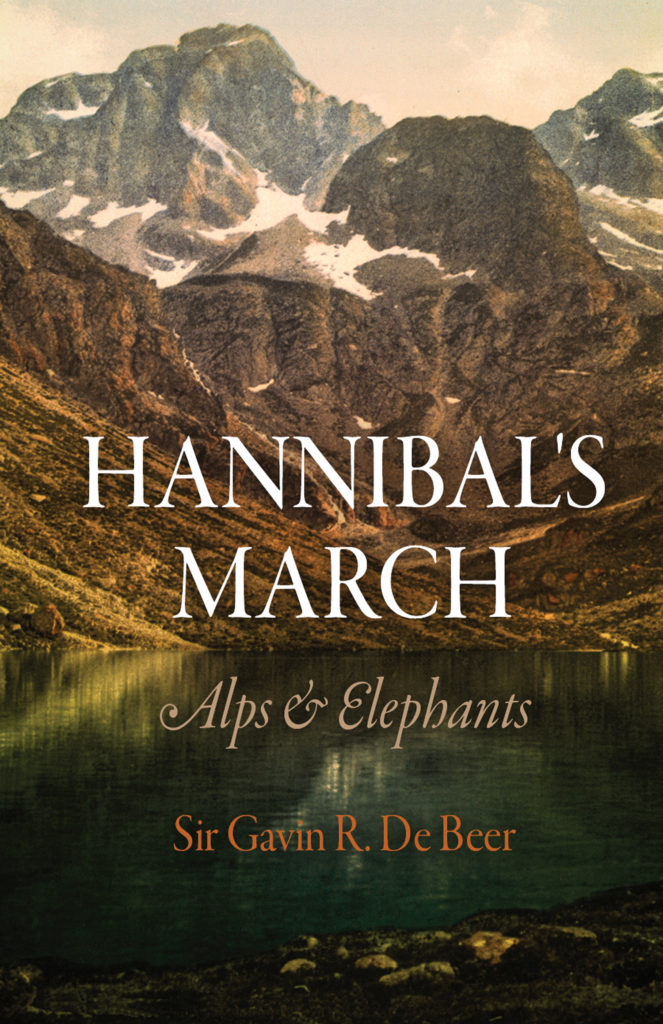

Hannibal's March
Alps and Elephants
$12.95 Add to Cart Save 25% on every book by joining our Book Club


One of the mysteries surrounding Hannibal’s famous march on Rome during the Second Punic War is the actual route his Carthaginian army took from Spain across the Alps and onto the plains of Italy. Even during Julius Caesar’s time it was the subject of much speculation. The march is popularly known for both the elephants that accompanied the expedition and the use of heat and vinegar to break boulders that blocked their way, but it was not until 1955 that Gaving R. De Beer, Director of the British Museum, established what is considered to be the most probable route Hannibal’s army took. The author not only scoured ancient accounts, he consulted astronomers, geologists, climatologists, and philologists, and retraced the route himself using classical sources and the information supplied by experts as his guide. The result is Hannibal’s March: Alps and Elephants, a delightful, erudite account, reprinted here for the first time in paperback.
Sir Gavin R. De Beer (1899–1972) was a director of the British Museum (Natural History).
“A book in which lively writing and scholarly research are happily mated. Moreover, it is convincing.”—New York Times
“The most notable quality in this study—apart from its sturdy practicality and common sense—is the readiness with which its author avails himself of the most diverse varieties of evidence.”—Times Literary Supplement
“Those who read this book will discover that, as treated by Sir Gavin, the subject is a fascinating one. Here is no parched parchment study, but an on-the-spot exploration of roads and rivers daily traversed by thousands.”—Christian Science Monitor